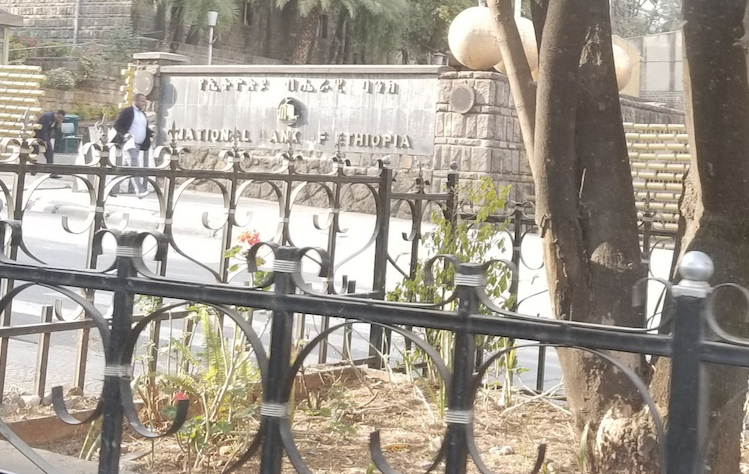
Radar | Nov 16,2019
Jul 9 , 2022
By TSION HAILEMICHAEL ( FORTUNE STAFF WRITER )

With the completion of the national soil database, Mandefro Nigussie (PhD), chief executive officer (CEO) of the Agricultural Transformation Institute, has taken the final phase of the Ethiopian Soil Information System project, launched a decade ago, across the finish line.
CSM Technologies, an Indian firm, and its local partner, Africom Technologies Plc, developed the national database system at the cost of five million dollars, 265 million Br at the current exchange rate. The duo were among 13 companies bidding after the Institute floated an international tender in 2018. The Indian company set foot in Ethiopia a decade ago after securing a 3.5 million Br contract to develop software to automate the wealth registration of public officials for the Federal Ethics & Anti-Corruption Commission.
Last year, CSM Technologies landed a 333,000 dollars deal from the Addis Abeba City Administration to design and implement an integrated land management information system. Incorporated in 2004 with a paid-up capital of 30,000 Br, Africom Technologies Plc develops electronic services portals. The online passport application and the integrated urban landholding file management system are among its portfolio. Ansar Yosuf, Tewodros Mitiku, and Bahiru Zeyenu share 33pc stake each in the company, the remaining small percentage owned by Jemal Dawud.
The soil information project was initially expected to wrap up within a year. However, the pandemic slowed things down, according to Bahiru Zeyenu, Africom's chief executive officer (CEO).
The project's primary beneficiaries will be the 80,000 agriculture extension workers deployed across the country to help farmers with technical advice and information.
"It'll be available to all regions soon," Mandefro told Fortune.
He disclosed that the database would go online by the end of this year.
Mandefro, who studied genetics and plant breeding, says disseminating reliable and timely information about soil fertility is vital to applying chemical fertilisers and developing intelligent agricultural policies. Before he was appointed to his current job, he had various responsibilities, including as a state minister for Agriculture and director-general of the Ethiopian Institute of Agricultural Research. He took the helm at the former Agricultural Transformation Agency (ATA) two years ago, following the departure of Khalid Bomba (PhD), its founding CEO.
Initially funded by the Gates Foundation, the Institute has come a long way since its founding in 2010 under Khalid. It has developed over 250 strategies, including one on malt barley, and implemented 48 projects, including its flagship programme on soil mapping.
Since 2015, experts have gathered data about soil fertility levels across the country, employing remote sensing satellite technology. Over 100,000 soil samples collected from 18,000 rural kebeles were analysed. Twenty-eight soil groups, with 18 classified as dominant, have been identified. After publishing the soil fertility status and fertiliser recommendation atlases, the federal government handed the map to six regional states, while maps for the Benishangul-Gumuz, Somali, and Afar regional states are still under production.
Officials hope the soil database will contribute to a spurt in agricultural productivity.
Lemma Wogi (PhD), assistant professor of soil science at Haromaya University, foresees the project will help address one of the foremost challenges the subsistent agrarian-based economy has been facing for centuries.
"The programme can promote higher crop yields if the recommendations are applied well," he said.
The agricultural sector, which accounts for 35pc of the GDP, has been characterized by low productivity, partly due to the deterioration of soil fertility and the blanket application of chemical fertilisers. Until 2017, smallholder farmers had been applying only two types of fertiliser: Urea and diammonium phosphate (DAP). This was despite studies showing the soil in Ethiopia lacks 16 essential nutrients. This began to change after the federal government introduced a preliminary fertiliser recommendation, introducing new types of compound fertilisers such as NPS and NPSB, as well as locally-blended fertilisers.
In 2015, federal authorities initiated the construction of four blending plants to respond to demand. They began blending and supplying fertilisers adapted to local soils the same year. However, they all ceased operations four years later.
With the capacity of blending 3,000qtl of fertiliser a day, Becho Woliso Blending Factory opened its doors seven years ago in the Oromia Regional State. Installed with an investment of 31 million Br, it has been over three years since the plant has blended and supplied fertiliser to smallholder farmers.
"We ceased operations due to a shortage of materials essential for blending fertilisers," said Abraham Tegege, general manager.
Becho Woliso continues to keep its 18 workers on the payroll.
Getting these plants back in operation is vital to increasing productivity as chemical fertilisers available on the market consist mainly of basic chemicals such as nitrogen, sulphur, and phosphorus, according to Lemma.
"This limits farmers' options for supplementing deficits in the soil," he said.
The federal government has procured 1.3 million tonnes of NPS, NPSB, and Urea for the upcoming Mehir season, 40pc less than what was shipped last year. The distribution has been sluggish, too.
Alongside the implementation of the soil mapping project, ATA officials have been working on the establishment of a national soil testing centre and five regional soil testing laboratories. The Ministry of Agriculture has secured a plot around the Koye Fiche condominium site in Akaki-Qality District to construct the centre, sources disclosed.
PUBLISHED ON
Jul 09,2022 [ VOL
23 , NO
1158]

Radar | Nov 16,2019

Fortune News | Dec 25,2021

In-Picture | Apr 19,2025

Fortune News | Jul 13,2019

Fortune News | Apr 27,2025

Radar | Oct 30,2021

Fortune News | Feb 13,2021

Fortune News | Aug 10,2019

Fortune News | Apr 12,2020

Fortune News | Mar 14,2020

Dec 22 , 2024 . By TIZITA SHEWAFERAW
Charged with transforming colossal state-owned enterprises into modern and competitiv...

Aug 18 , 2024 . By AKSAH ITALO
Although predictable Yonas Zerihun's job in the ride-hailing service is not immune to...

Jul 28 , 2024 . By TIZITA SHEWAFERAW
Unhabitual, perhaps too many, Samuel Gebreyohannes, 38, used to occasionally enjoy a couple of beers at breakfast. However, he recently swit...

Jul 13 , 2024 . By AKSAH ITALO
Investors who rely on tractors, trucks, and field vehicles for commuting, transporting commodities, and f...

Nov 1 , 2025
The National Bank of Ethiopia (NBE) issued a statement two weeks ago that appeared to...

Oct 25 , 2025
The regulatory machinery is on overdrive. In only two years, no fewer than 35 new pro...

Oct 18 , 2025
The political establishment, notably the ruling party and its top brass, has become p...

Oct 11 , 2025
Ladislas Farago, a roving Associated Press (AP) correspondent, arrived in Ethiopia in...